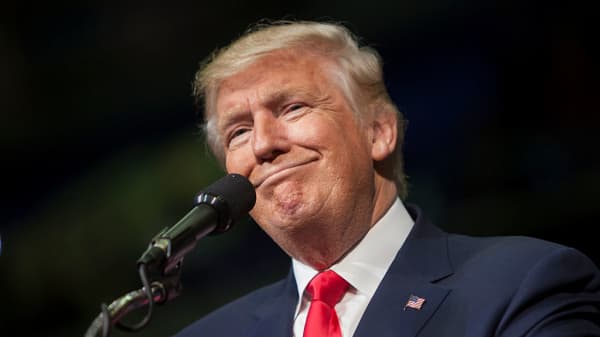President Donald Trump faces another lawsuit, this time from the attorneys general of Maryland and the District of Columbia, over an alleged Constitutional conflict of interest stemming from his ownership in a Washington, D.C. hotel.
The suit alleges that Trump hasn't gone far enough to separate himself from his ownership of a luxury Washington hotel that has hosted multiple foreign delegations since he was sworn in as president.
"Foreign governments are spending money there in order to curry favor with the president," Karl Racine, attorney general for the District of Columbia, told reporters Monday. "We are a nation of laws, and no one, including the president of the United States, is above the law."
The White House did not respond to a request for comment.
The president's ongoing ethical difficulties result from his refusal to divest himself of a sprawling network of more than 500 properties that he has amassed in more than three decades as a celebrity entrepreneur.




